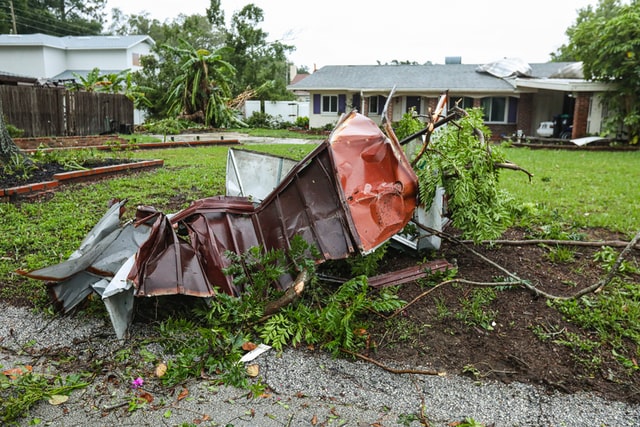Natural disasters—such as hurricanes, floods, earthquakes, tornadoes and wildfires—can sometimes force you and your family to evacuate your home in order to stay safe. When you are able to return to your home after the disaster, the cleanup and repair process can be a difficult feat. It can also be extremely hazardous if you don’t take adequate safety precautions. With this in mind, make sure you follow these steps when you return to your home following a natural disaster.
Contact Your Insurance Agent
First and foremost, it’s important to contact your insurance agent and file a claim as soon as you are able to see the damages to your home. Be sure to file a claim before starting any cleanup or repair efforts. Take plenty of photos and videos of your home in order to properly document the damages. Once the cleanup and repair process begins, keep receipts for the associated costs to ensure adequate compensation for your loss.
Hazards to Watch For
During the cleanup and repair process, be prepared for the following hazards:
- Natural gas—If you smell gas or hear a hissing sound, open a window and leave immediately. Alert the gas company as soon as possible.
- Sparks and broken or frayed wires—If you suspect damage to any part of your electrical system or if there is standing water in your home, turn off the electricity at the main fuse box if you can safely do so. Do not use electricity unless you are certain it is safe to do so.
- Roof, foundation, and chimney cracks—A close examination of your home’s structural integrity is very important. If you feel that there is a chance for collapse, leave immediately.
- Water and sewage systems—If any pipes are damaged, turn off your water at the main valve. Check with local authorities before using any water, as it may be contaminated. Also, make sure sewer lines are intact before using toilets.
- Hazardous materials—Household chemicals, raw sewage, and other substances that have spilled or leaked throughout your home need to be safely cleaned up as soon as possible.
Know Your Risk
Remember that some areas come with a higher risk of natural disasters taking place. If you live in an area that is prone to certain types of natural disasters, it’s crucial to take steps to protect your home from potential damages and prepare an emergency response plan with your family.
In addition, consult your insurance agent to ensure that you will be adequately covered if a natural disaster damages your home. Keep in mind that some disasters—such as earthquakes and floods—typically aren’t covered by a standard homeowners insurance policy. With this in mind, be sure to secure additional, personalized coverage if needed. For more personal risk management guidance and homeowners insurance solutions, contact us today.




